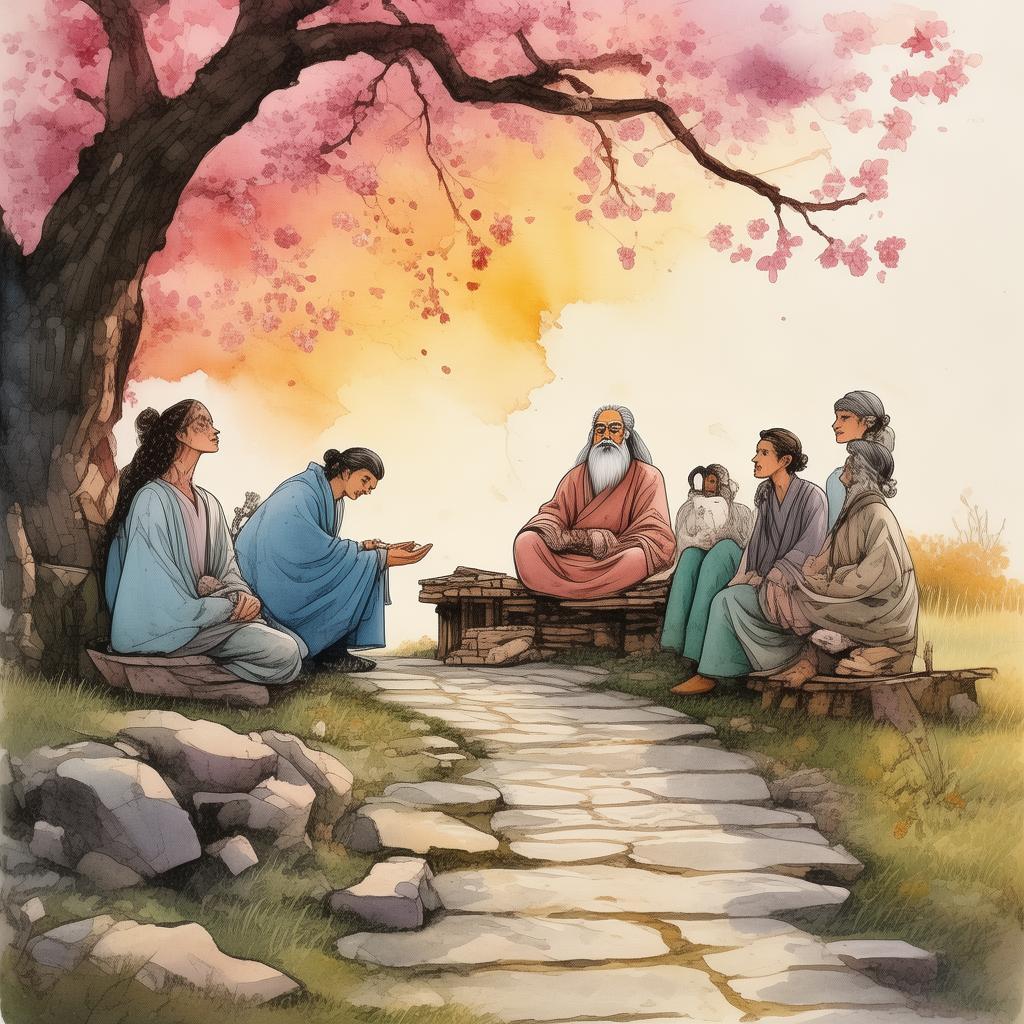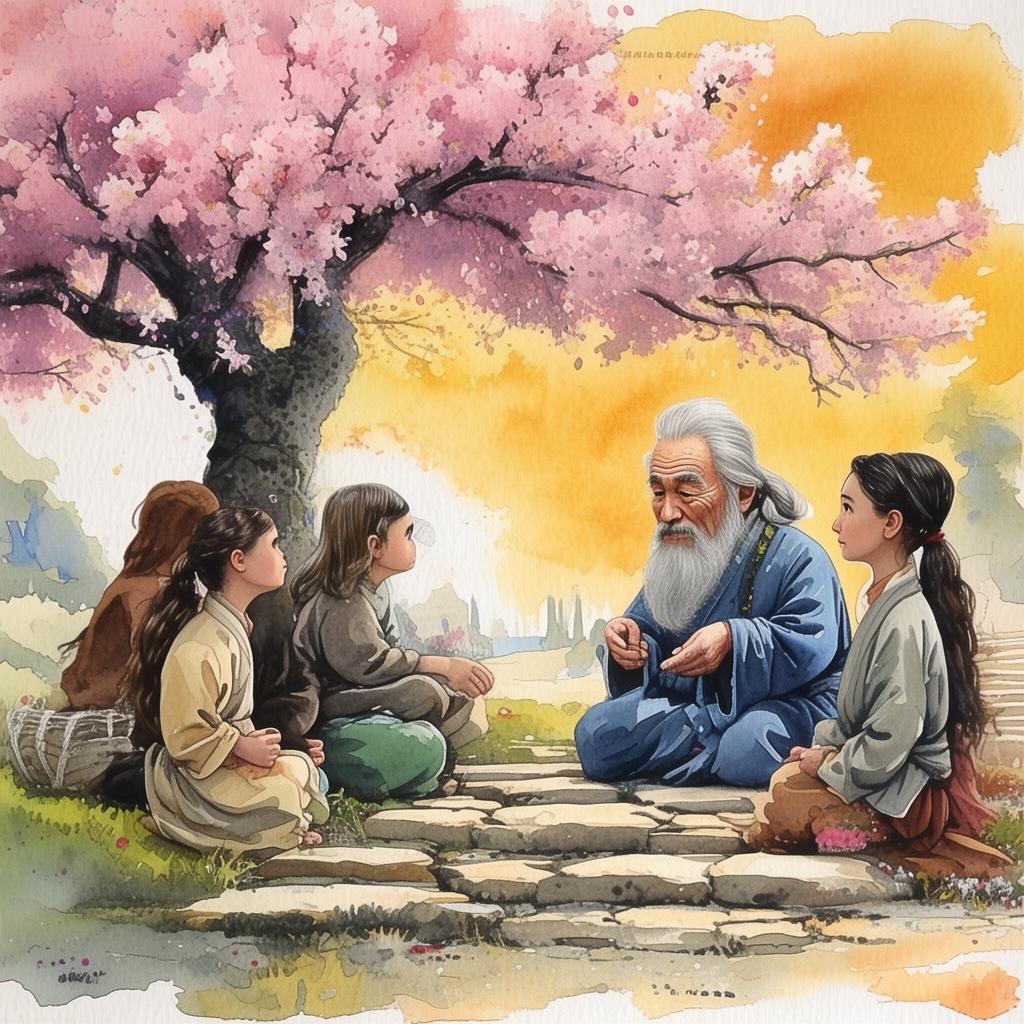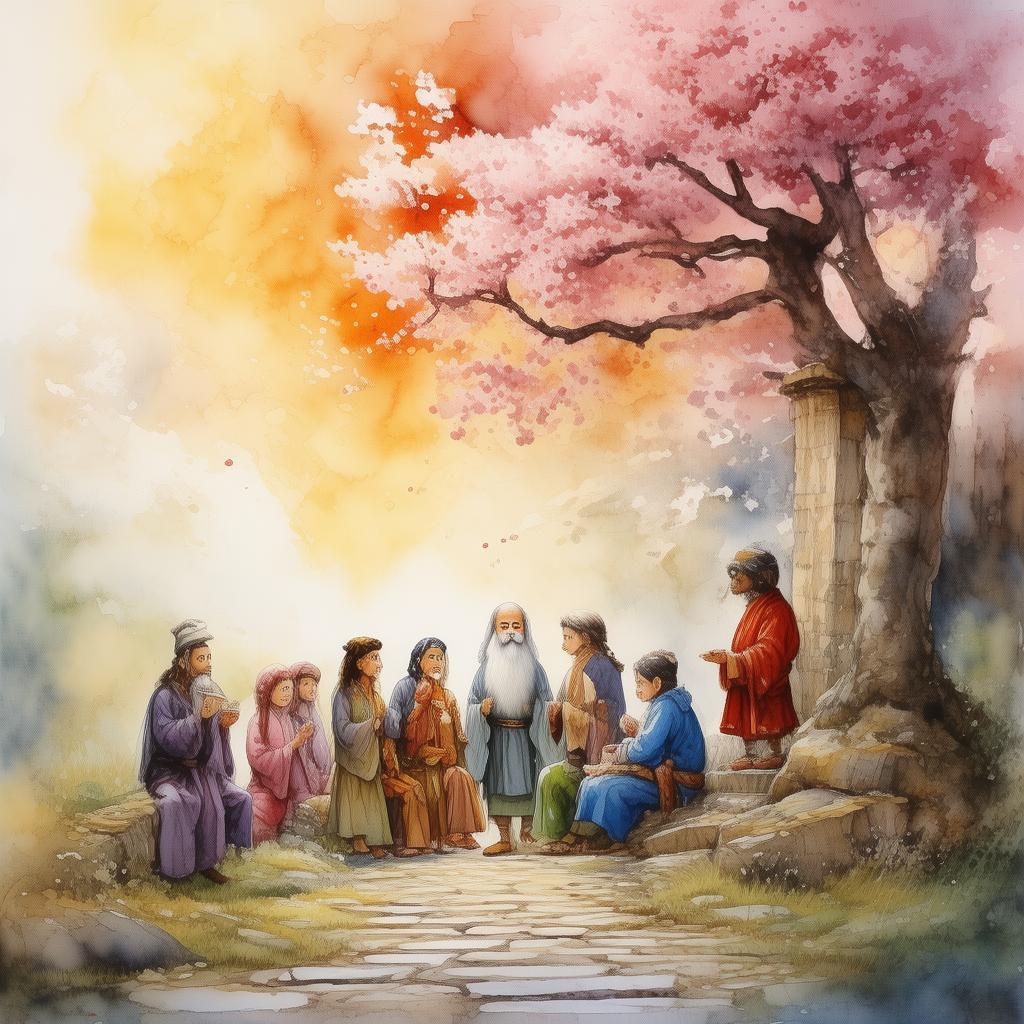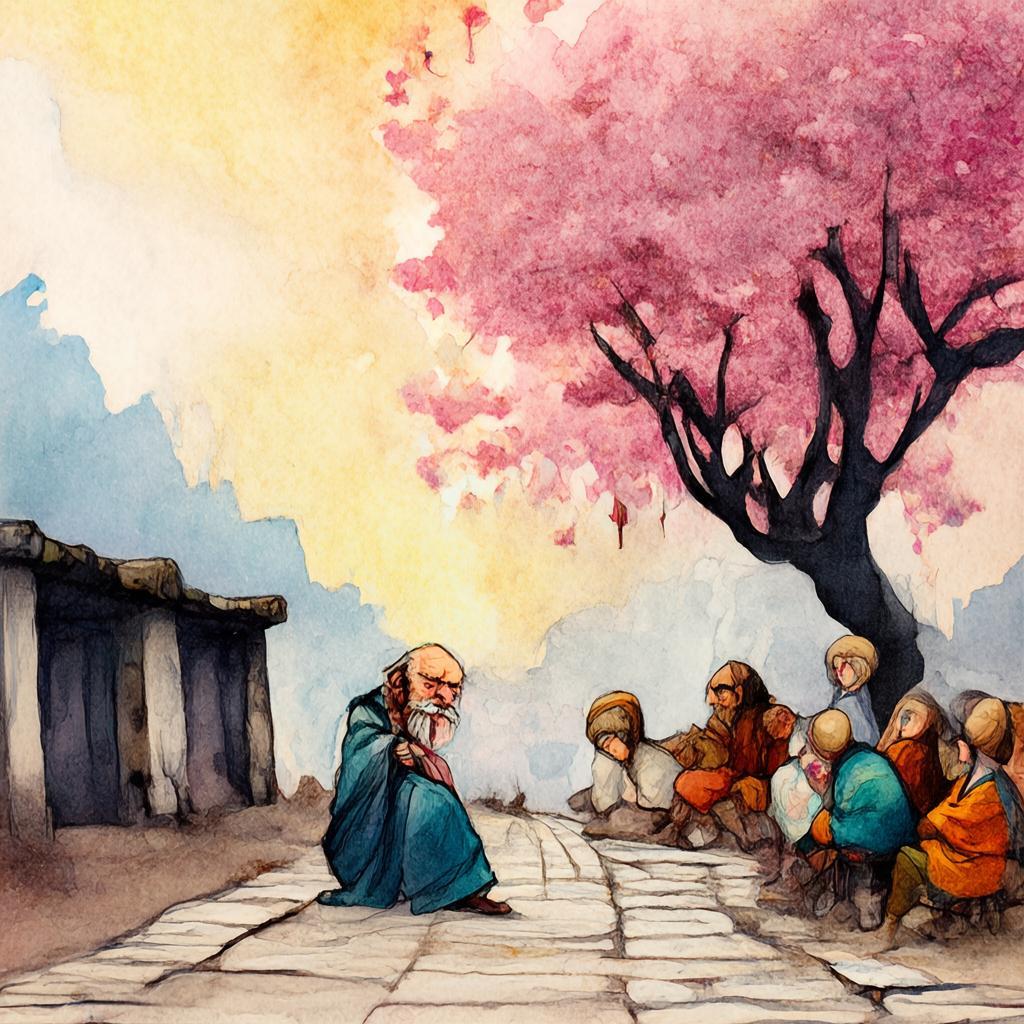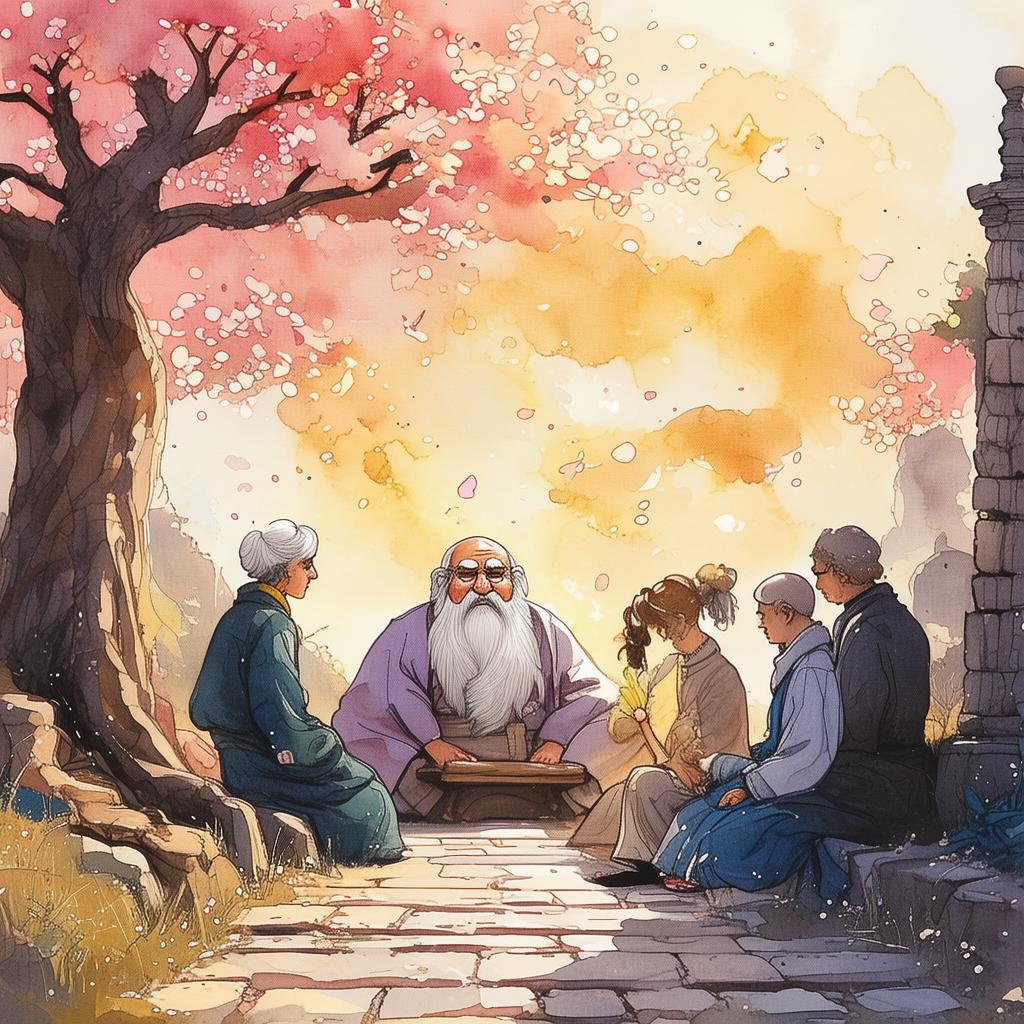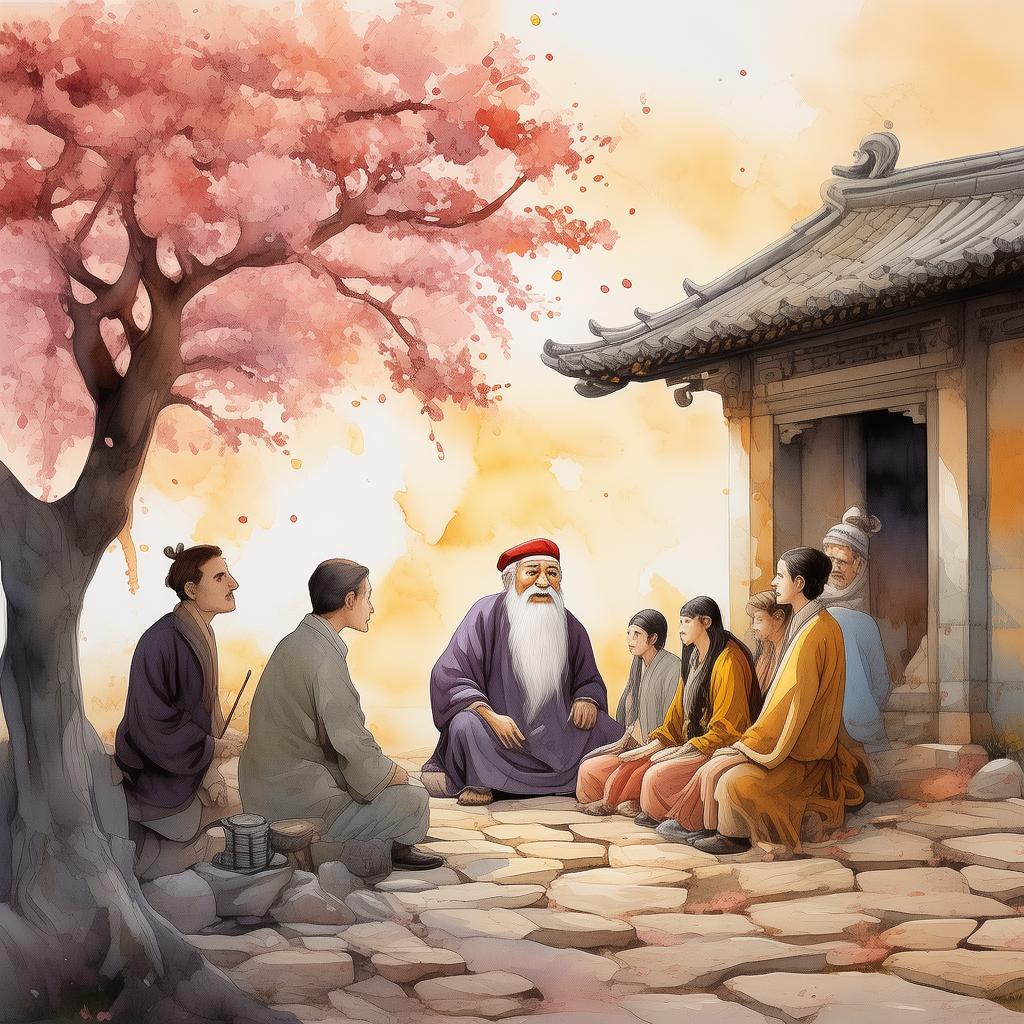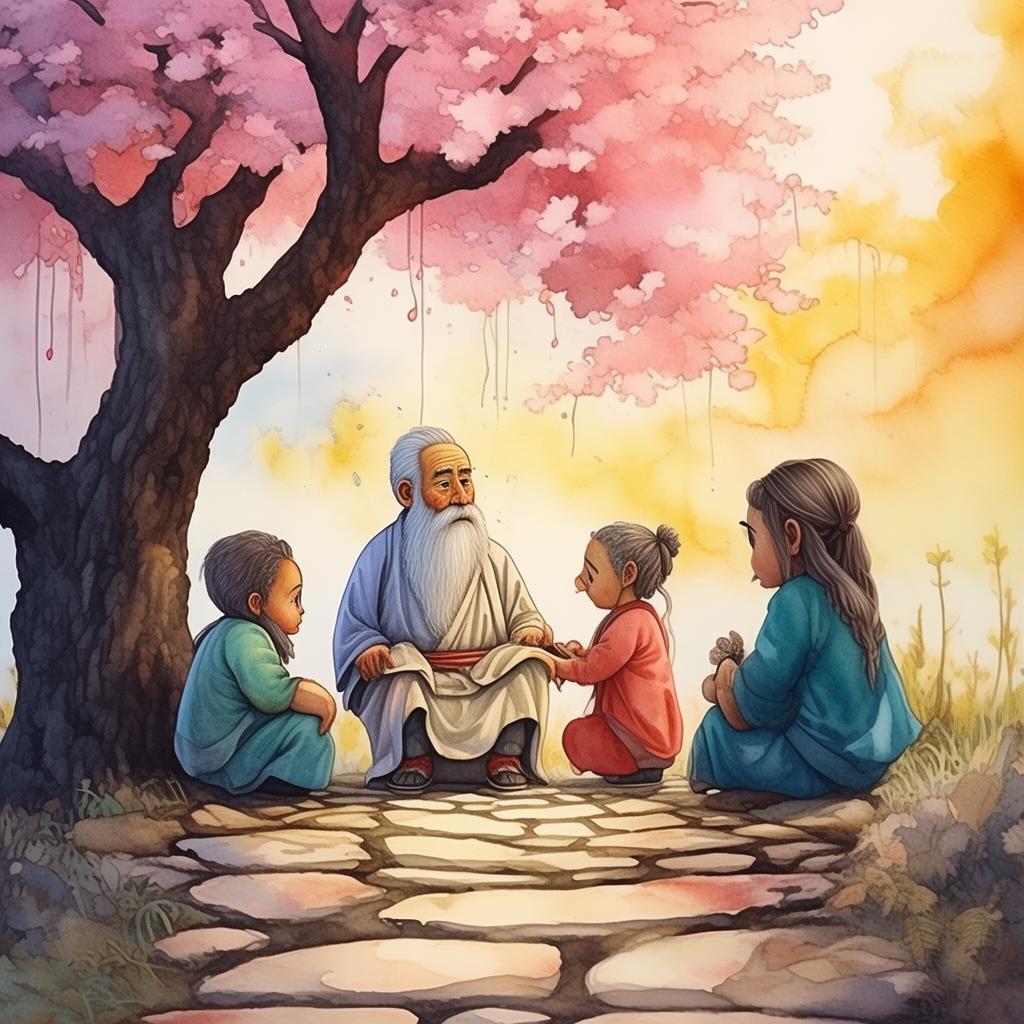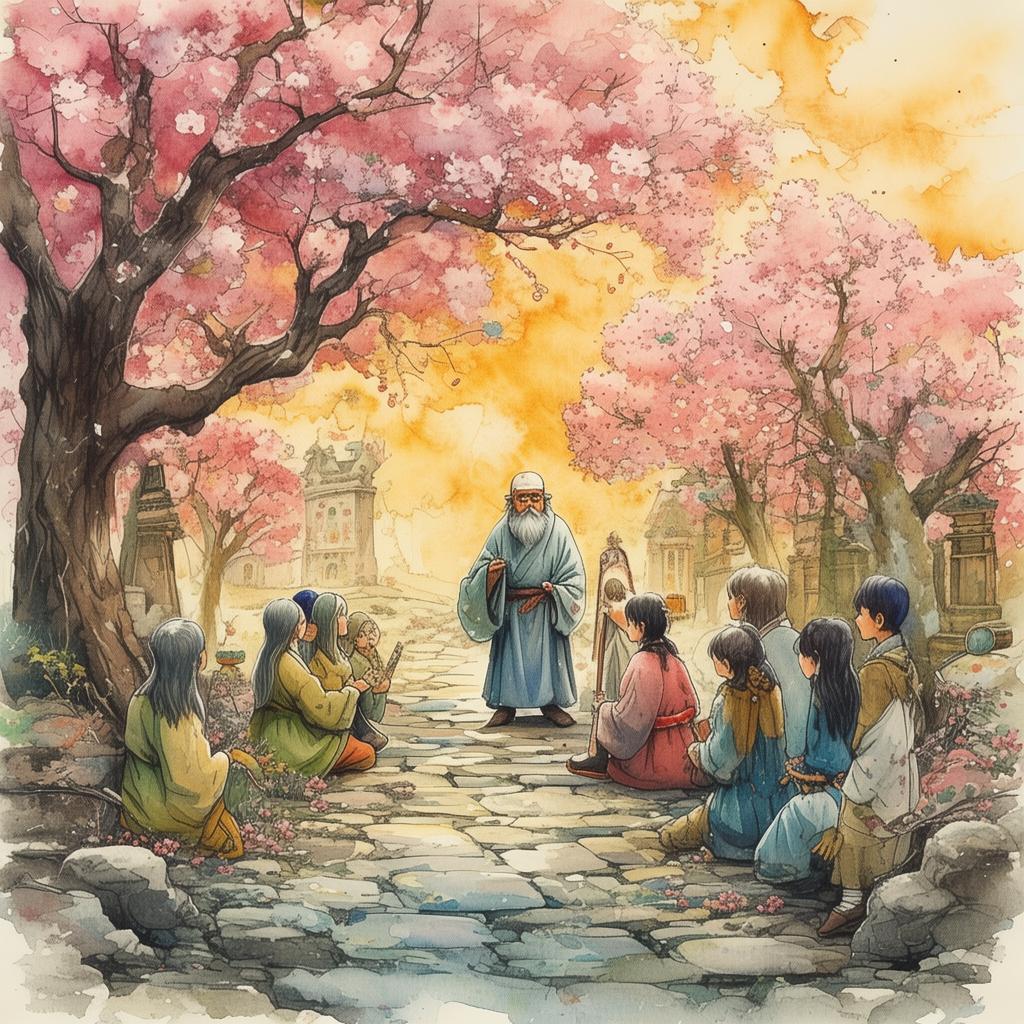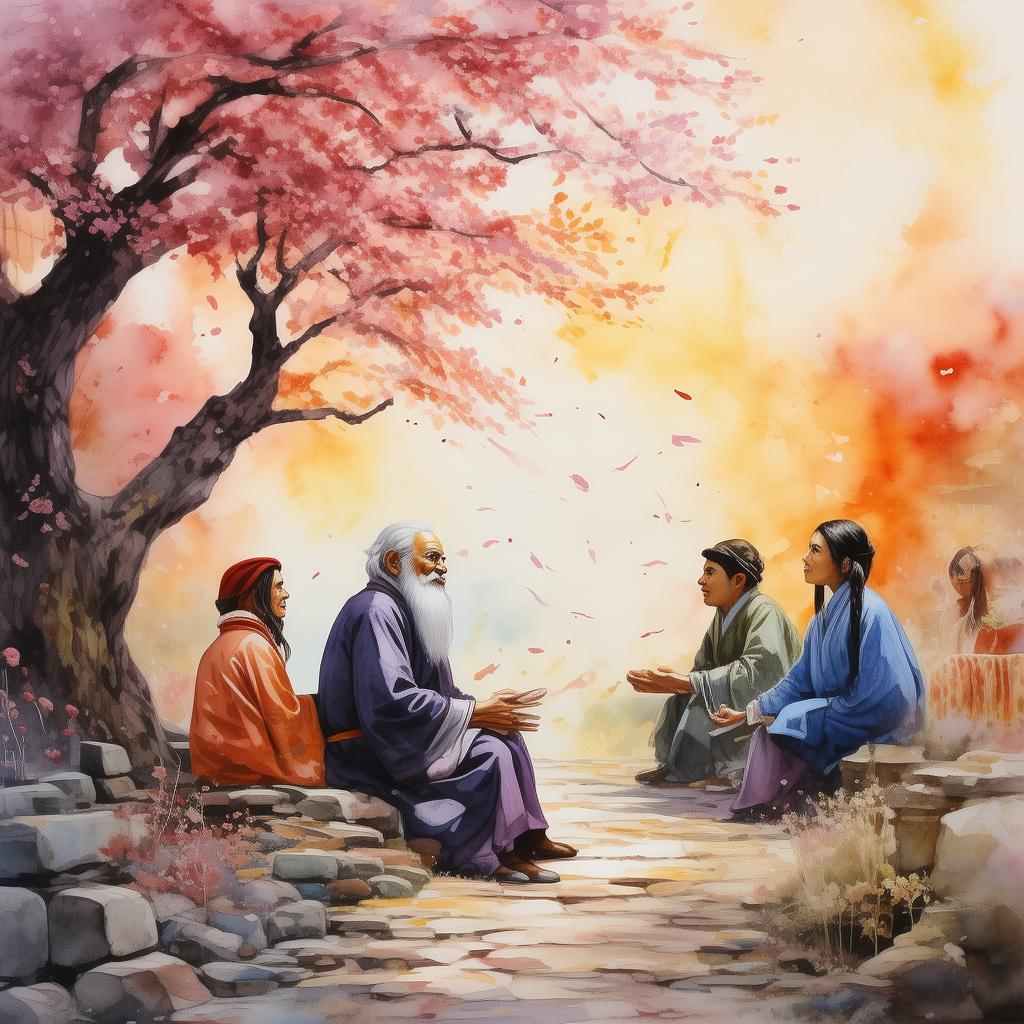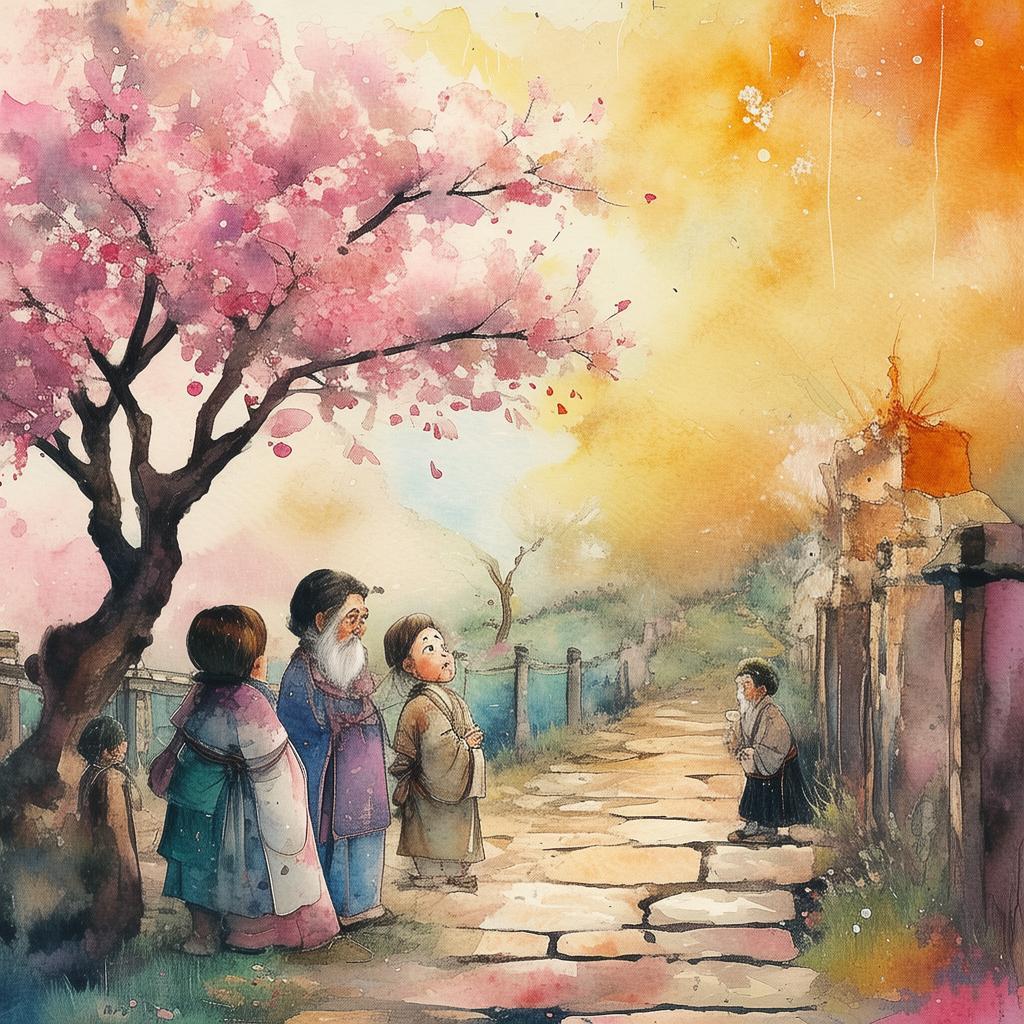Escape from the Labyrinth of Legends: The Proverbial Trial
In the heart of ancient Fujian, where the mountains whispered secrets and the rivers sang tales of old, there stood a labyrinth that none dared to enter. It was said that within its walls, proverbs and legends were interwoven, and only the wisest could escape. The labyrinth was a test, a proverbial trial, and its name was the Labyrinth of Legends.
In a village nestled among these ancient mountains, a young scholar named Li Heng heard of the labyrinth. He was known for his sharp mind and deep knowledge of the Fujian proverbs, and he was determined to prove his worth. With a heart full of courage and a mind brimming with wisdom, Li Heng set out on a journey to the labyrinth.
The labyrinth was not a mere maze of walls and paths; it was a place where the past and present intertwined. The walls were adorned with intricate carvings, each one a story, each one a proverb. The air was thick with the scent of history, and the silence was almost deafening.
Li Heng stepped inside and was immediately greeted by a voice that seemed to come from everywhere and nowhere. "Welcome, traveler. You have entered the Labyrinth of Legends. Only those with the wit to solve the proverbs and the courage to face the trials may hope to escape."
The first challenge was a riddle etched into the wall. "A bird has no wings, yet it flies. What is it?" Li Heng pondered the question. "It's a fish," he answered, remembering a proverb from his studies. The wall opened, revealing a path forward.
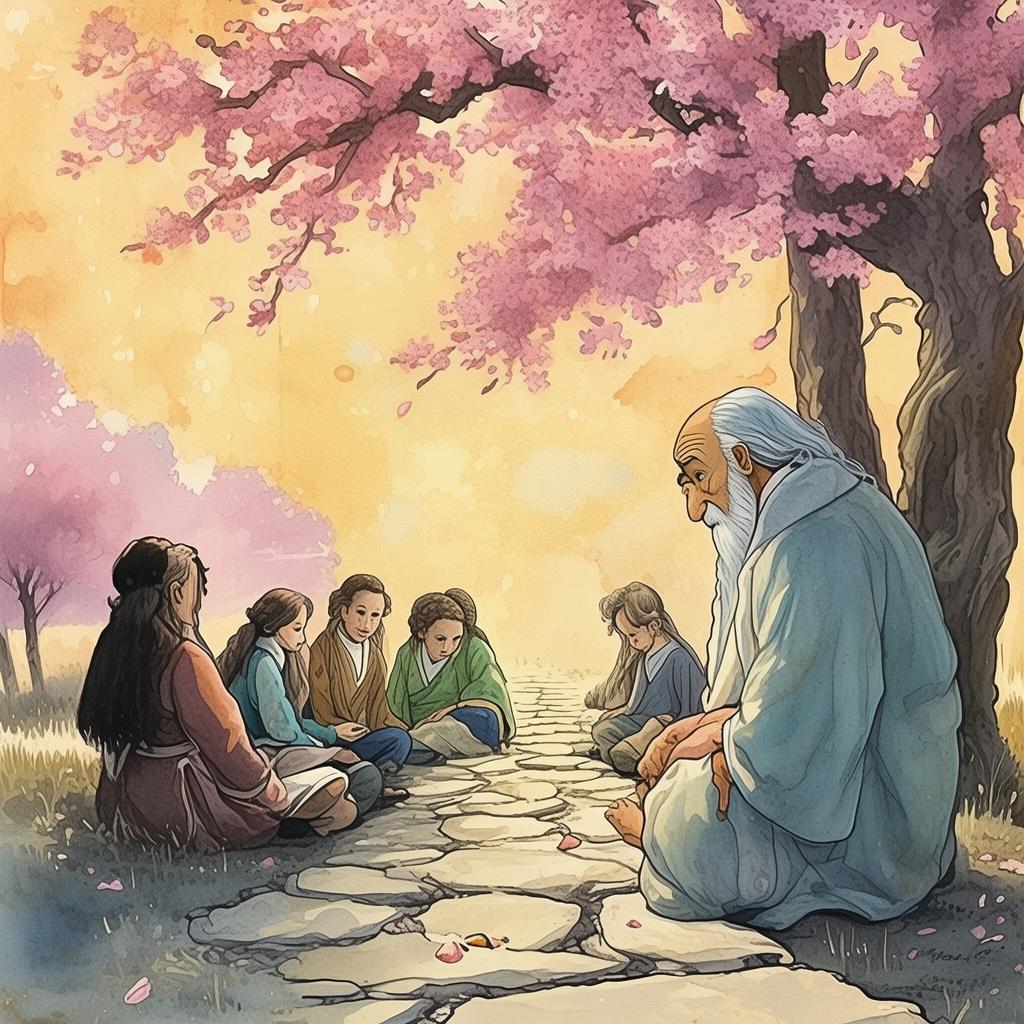
As he moved deeper into the labyrinth, the challenges grew more complex. He encountered a puzzle where he had to arrange the characters of a proverb to form a new word that would unlock a door. Another time, he had to use a proverb to navigate a maze that seemed to twist and turn like the river that flowed through Fujian.
Li Heng's knowledge of the proverbs was his greatest asset, but it was his resolve that carried him through. Each trial tested not only his intellect but also his character. He faced moments of doubt and fear, but he pushed on, driven by the thought of proving his worth.
The labyrinth was not just a test of his knowledge; it was a test of his heart. He encountered a proverb that spoke of loyalty and betrayal, and he had to choose between two paths, one leading to safety but at the cost of a friend, and the other fraught with danger but filled with honor.
Li Heng chose the path of honor, and with a heavy heart, he left behind a friend who understood the true cost of his choices. The labyrinth seemed to nod in approval, and the walls opened wider, revealing a new path.
Finally, Li Heng reached the heart of the labyrinth. Before him stood a final challenge. A wall with a single proverb carved into it: "The wise man sees the future, the fool sees the past." Below the proverb was a choice: a door that led to freedom, or a mirror that would show him his own reflection.
Li Heng knew that the wise choice was not always the easy one. He turned to the door, ready to face the unknown beyond the labyrinth. As he stepped through, the labyrinth seemed to sigh, and the walls began to fade away.
Li Heng emerged from the labyrinth, a changed man. He had faced his fears, made difficult choices, and proven his worth. The village welcomed him with open arms, and he was hailed as a legend.
The Labyrinth of Legends had tested him, and he had passed. He had not only escaped the labyrinth but had also escaped his own limits, proving that wisdom and courage could indeed lead to greatness.
✨ Original Statement ✨
All articles published on this website (including but not limited to text, images, videos, and other content) are original or authorized for reposting and are protected by relevant laws. Without the explicit written permission of this website, no individual or organization may copy, modify, repost, or use the content for commercial purposes.
If you need to quote or cooperate, please contact this site for authorization. We reserve the right to pursue legal responsibility for any unauthorized use.
Hereby declared.
